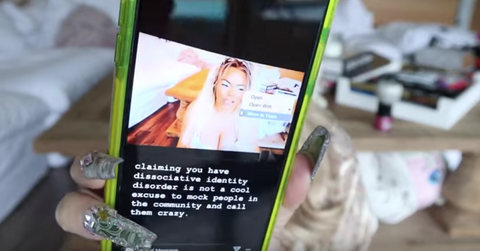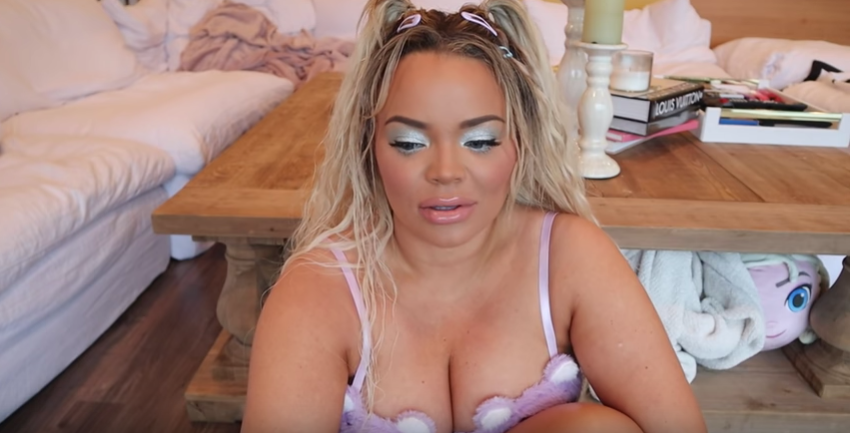Trisha Paytas Diagnosed Herself With Dissociative Identity Disorder and No One Is Here for It
Updated Aug. 14 2020, 3:03 p.m. ET

Youtuber Trisha Paytas is no stranger to controversy. From her transgender reveal video to her drug use, the social media personality is always in the limelight for something that has people shaking their head or calling her out. Most recently, she's being called out for diagnosing herself as having Dissociative Identity Disorder, or DID. And, in doing so, she managed to insult real people with the illness.
What exactly did Trisha Paytas say about DID?
In a March 12 video on her YouTube channel, Trisha posted a video claiming that she has "self-diagnosed" herself with "multiple personality disorder or dissociative identity disorder." She goes on to describe how she's always had different sides of herself, like T and Trixie, who have been a part of her for much of her life.
"Unfortunately for me, Trish, I never really formed my own personality," she says. "I was never able to develop my own personality which is fine because I have others."
Throughout her 20 minute video, she attempts to explain how DID works to her viewers. But the issue is that the video is rife with A.) misinformation on how DID works and B.) insults towards people who suffer from DID.

At one point, she says, "I watched the Anthony Padilla one and there's a girl, DissociaDID or something, and I watched it and I was like, 'Oh she seems crazy' but I know that's what I sound like now which is actually, like, really, really scary."
The video that she's referring to is one, released on March 4, in which YouTuber Anthony Padilla discusses a detailed history of DID, which was previously called Multiple Personality Disorder but is no longer. Throughout the video, he also interviews several people who have been professionally diagnosed as having the disorder. One such person was the person who Trisha referred to as "crazy": Nin from the YouTube channel, DissociaDID.
In response to Trisha's video, Nin did a 40 minute reaction video, in which she broke down every piece of misinformation that Trisha stated in her original video. To give you an idea of how that went, Nin had to stop Trisha's video 20 seconds in to explain why her definition of "alters" as "people who have multiple personalities" is not right.
After Trisha's initial video went live, Anthony took to Instagram to share a screenshot of it in his Story, along with a caption saying, "Claiming you have dissociative identity disorder is not a cool excuse to mock people in the community and call them crazy." At which point, Trisha then took to YouTube again with a video directed at him, saying, "People are entitled to say whatever the f- they want about," his March 4 video.
"All I said was, like, yeah, watching that, I could be like 'That girl seems crazy.'...And I'm sorry, just because someone has Dissociative Identity Disorder like this girl does in the video doesn't mean that she is the king all, know-it-all 'Oh you have DID' or 'I have it, you don't,'" she said.
It should be noted that, in DissociaDID's response video, Nin made a point of saying at the start that she would not attempt to diagnose Trisha or claim that she did or did not have the disorder, as only a professional should do that.
Despite Trisha's video defending her claim that she had every right to call Nin crazy, no one really agrees.
Even after posting the video directly in response to Anthony saying that she should not be calling people with DID crazy, Trisha has continued to tweet at him, though he has opted not to respond on Twitter, save for tweeting out Nin's video.
However, people have widely been siding with Anthony on this. And they are asking Trisha to stop what she's doing.
Regardless of what Trisha does or does not have, DID is a real mental illness that can be diagnosed. If you or someone you know needs help, use SAMHSA’s Behavioral Health Treatment Services Locator to find support for mental health and substance use disorders in your area: https://findtreatment.samhsa.gov, or call 1-800-662-4357 for 24-hour assistance.